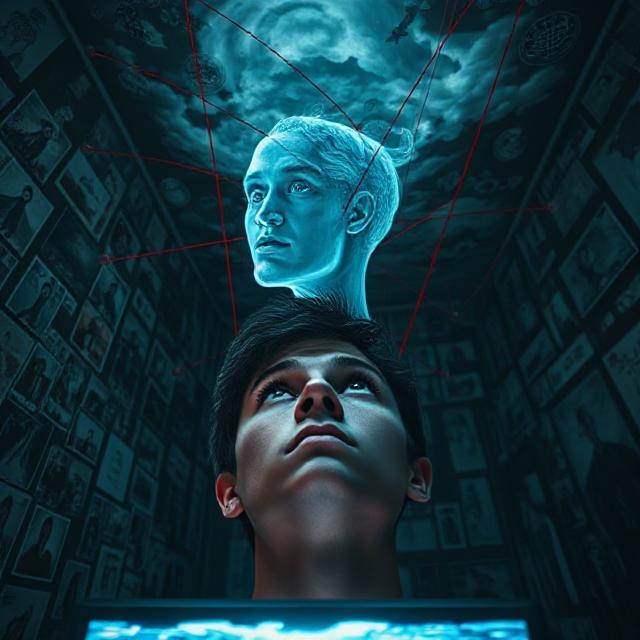Your cart is currently empty!
Why Do People Believe in Conspiracy Theories?

Table of Contents
Why Do People Believe in Conspiracy Theories?
Why do people believe in conspiracy theories — ideas suggesting secret plots by powerful groups? From moon-landing deniers to QAnon, conspiracy thinking is widespread and influential. Whether harmless or harmful, conspiracy beliefs shape politics, health behavior, and trust in institutions. This article dives into the psychological, social, and cognitive factors that fuel conspiracy belief—giving clues not just on what people believe, but why.
I. Defining Conspiracy Theories
- What counts as a conspiracy theory?
Theories that claim events are orchestrated by malevolent, hidden networks, despite lack of credible evidence. - Spectrum of belief: from mild skepticism of official narratives to extreme, all-encompassing conspiracy systems.
- Examples: Moon-landing hoax, 9/11 “inside job,” vaccine microchips, election fraud, chemtrails.
II. Cognitive Drivers
A. Pattern Recognition & Agency Detection
Humans evolved to spot patterns and intent—even where none exist (e.g., seeing faces in clouds). This cognitive bias helps us stay safe, but also leads to false-positive detections of conspiracies.
B. Need for Closure
Uncertainty is uncomfortable. Conspiracy narratives offer simplistic, definitive explanations for complex events—reducing ambiguity and restoring psychological comfort.
C. Motivated Reasoning
People tend to accept information aligning with their worldview and dismiss contradictory evidence. Conspiracies offer morally satisfying narratives that reinforce identity or ideology.
III. Emotional and Existential Factors
A. Anxiety, Procrastination & Powerlessness
Feeling powerless or anxious increases likelihood of believing conspiracies. These narratives offer a sense of control—“I see through the lies.”
B. Threat & Distrust
Conspiracy beliefs spike during crises—pandemics, economic collapse, political turmoil—moments when institutions feel weak or untrustworthy.
IV. Social and Cultural Influences
A. Cultural Resonance
Beliefs resonate when they align with broader distrust or cynicism in a community (e.g., political polarization, media skepticism).
B. Echo Chambers & Online Communities
Social media algorithms amplify fringe theories by clustering believers and reinforcing confirmation bias. Group identity strengthens belief through peer validation.
C. Historical Precedence
Past conspiracies (Watergate, Tuskegee experiments) demonstrate that conspiracies do happen—fostering general suspicion even toward unfounded theories.
V. Ideological and Personality Correlates
- Authoritarianism, narcissism, and “dark triad” traits tend to be linked with conspiracy belief.
- Individual narratives: Some use conspiracies to feel special or to rebel against the mainstream.
- Martin Linsky’s “Contagion of conspiracy beliefs”: Suggests conspiracy thinking moves through social groups like an infective meme.
VI. Consequences of Belief
A. Personal & Societal Risks
- Vaccine hesitancy, reduced trust in science, increased polarization.
- Can spark real-world violence—from election violence to anthrax hoaxes.
B. Adaptive Uses
- For some, conspiracy narratives are a creative response to uncertainty and inequality.
- Historically, secrecy and corruption justify healthy skepticism—but modern conspiracies often displace productive action.
VII. Addressing Conspiracy Belief
A. Promote Media Literacy & Critical Thinking
Encourage source-checking, skepticism toward sensational claims, and awareness of cognitive biases.
B. Rebuild Institutional Trust
Transparency, accountability, and social programs help reduce vulnerability to conspiracy narratives.
C. Empathy and Engagement
Harsh debunking often backfires. Compassionate dialogue that acknowledges underlying fears is more effective.
VIII. Tools and Thought Experiments
- Source evaluation exercises (e.g., check origin, author, evidence).
- Bias-spotting quizzes to raise awareness of motivated reasoning.
- Perspective-taking: imagining the psychological payoff of conspiracy belief.
IX. Conclusion
Why do people believe in conspiracy theories?
Because they fulfill cognitive, emotional, and social needs: order from chaos, identity, belonging, moral clarity. But while they can feel meaningful, they often divert from truth and undermine collective responsibility.
By understanding these underlying drivers, we can foster healthier skepticism—curiosity, doubt, and dialogue without rejecting facts or falling into mistrust.
